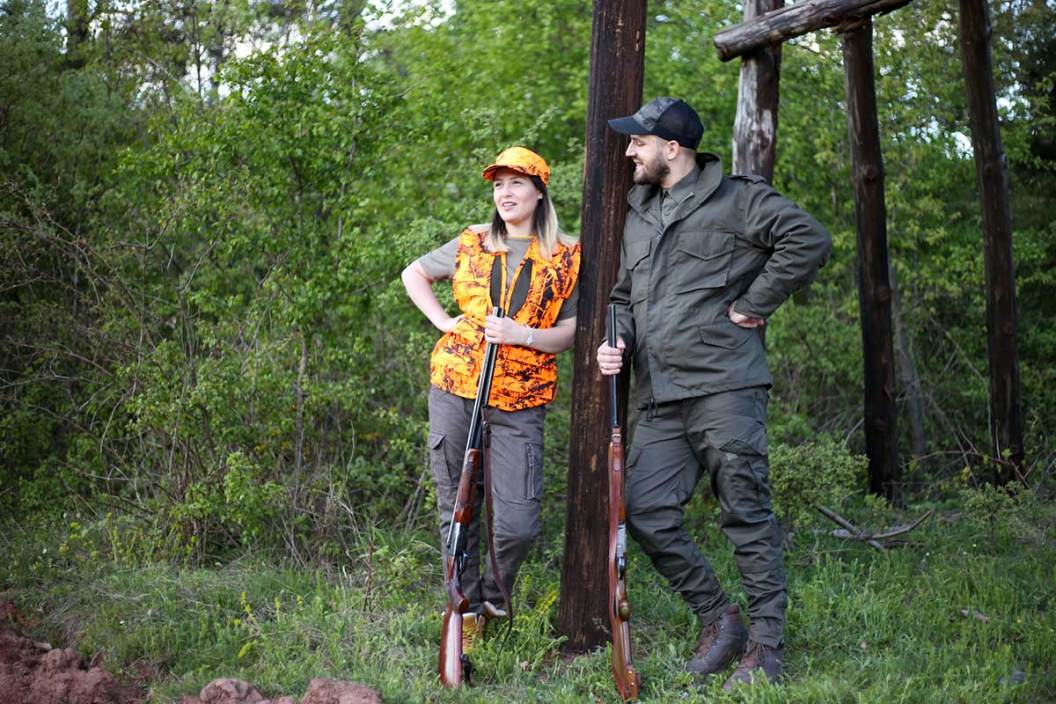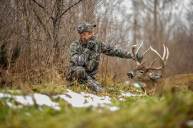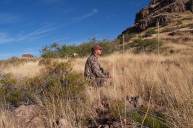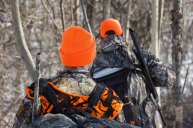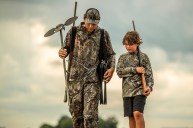Becoming a hunting mentor is one of the most rewarding things any outdoorsman can do. Here are some ways to mess it all up.
Teaching someone how to hunt is not an easy task. Even instilling the benefits of being an outdoorsman or woman can be tough in today's modern age of short attention spans and instant gratification.
You really have to know what you are doing if you want to give your kid the best education possible. Many of the things we do in the woods are a direct reflection of how our mentors hunted. If you are able to be an effective hunter on your own and have the patience to teach, you can be a great mentor.
We'll try to get the message across by sharing a few things you shouldn't do as a mentor. Consider them friendly reminders.
Start Too Late
It is never too late to learn how to hunt, but an early start can work wonders.
If you are a parent, you may not know exactly when to start teaching your children about hunting. The point at which you put a rifle or bow into a child's hand to kill a deer heavily depends on the child. You may need to wait a while for them to reach an appropriate maturity level.
I had a strict father growing up and as a result I was a relatively well-behaved kid. I definitely paid attention to what my dad said. I could follow instructions and understand when it was time to be serious, and as a result, I was able to shoot two deer at the age of five years old using a .243 single-shot rifle.
Truthfully, I cried when we were sighting it in because I was so startled by the loud noise and recoil. But I got used to it and when I pulled the trigger on a deer, I was way too excited to care.
Knowing when to put a rifle in your child's hand is a total judgment call on your part. Although even if your kid isn't ready to pull the trigger, you should still get them in the woods at a young age. Take them with you on hunts or take them shed hunting after the season. Teach them wildlife identification and game calling. Whatever you can do to get them experience in the woods will pay dividends in the future.
Anyone with kids knows it's hard for them to stay still and quiet for hours at a time, so there's nothing wrong with addressing those factors. I brought my GameBoy along when I was really young, which kept me occupied until a deer showed up.
Remember, it doesn't have to start with big game, either. You can also try a different method like squirrel hunting or dove hunting which asks for less patience and stillness while providing a lot more action. Finding something a little more involved may keep them interested longer.
Go Extremely Fast and Have Little Patience
When your kids get slightly older, say 8 to 10, they can really start to learn some independence. It can be easy to do everything for them and just have the kid pull the trigger. Truthfully, the most important thing at this age is learning.
You need to take the time to explain the things you are doing and have your mentee understand not only how, but why you are doing something. Don't just assume that since they have seen you do it once or twice that they can repeat it.
Skinning a deer is a good example of the need to go slow. This is likely the first time that a new hunter is going to see the inside of an animal with their own eyes. Have patience and carefully explain how to do it, and encourage them to try only when they're ready.
Truth be told, this is the most important part of being a mentor. Moving too fast with anything is a missed opportunity. They are not going to remember everything or understand it the first time. Repetition and consistency are paramount.
Only Go a Couple Times
There's no doubt it can be hard as a working parent to carve out a lot of time to hunt. When I was a kid, my dad and I went to Kentucky every year for their weekend-long youth season. It was our one big trip that I always looked forward to.
For a long time, that was about all the yearly hunting I did. When I reached around 11 or 12 years old, we started duck hunting close to home just about every weekend of the season, and hunted deer a bit there too.
It was then that I really caught the hunting bug. I was a little older, we started going a whole lot more, and that let me learn a ton about hunting.
If it is just something that you do once a year, your role as a mentor may not have as much of an impact as you'd hope.
Only Hunt One Animal and Only Do It One Way
New hunters often have preconceived notions. We know there is a lot more to hunting than sitting in a treestand with a rifle for hours on end waiting for a whitetail, but it's up to the mentor to show mentees the variety.
There is also a ton of strategy that goes into hunting, and there is no one single way to do it. Even if you are not an expert in every type of animal or tactic, it's a benefit to try it out. Better yet, take a new hunter with you and learn together. The memories you make together while learning and having fun will be more valuable than any animal you ever take home.
I still remember the first time my dad and I tried frog gigging in a nearby swamp. We encountered and shot a snake, got about a hundred bug bites each, and left with only a small handful of frogs. I still laugh thinking about that night!
Make It Too Serious
Remember, hunting is supposed to be fun. If you are too serious about it, or criticizing a new hunter in any way, you're doing it wrong. Constructive feedback is one thing, but belittling, discouraging, or talking down to someone who's trying something new is a recipe for disaster. Don't do anything that would encourage them to associate hunting with a bad time.
Keep it light and leave any pressure or obligations out of it. If you have a temper, keep it in check. The only thing that matters is that a new hunter realizes that hunting, as a learning experience, is a pretty awesome thing.
NEXT: HOW TO CHOOSE THE BEST OUTDOORSMAN PICKUP TRUCK FOR RUGGED TERRAIN
